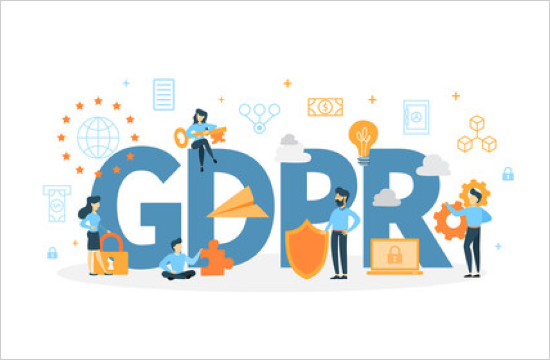Within the past few months, the risk of data breaches for Universities and Colleges has increased to a great extent. The GDPR and UK Data Protection Act have come into play as an action against this breach.
Although the complexity of regulations by GDPR and DPA are one of the significant challenges for business, it is, anyAlthough the complexity of regulations by GDPR and DPA is one of the significant challenges for business, it is the need of the hour anyway.
What is GDPR?
General Data Protection Regulation or GDPR is a regulation on data protection applicable to data subjects with the European Union. As per the GDPR norms, EU data subjects have the right to process, store, and transmit their data.

Many factors have contributed to data getting breached. Some of them include poor board-level awareness, incomplete corporate records, improper staff training, policies not being followed, staff walkarounds, and misconfiguration of systems. All of this can be brought under control, and data can be prevented from breaching by following all the steps mentioned below. But before we dive into the details, an institute should also pay attention to the technical and organizational measures. A major difference can be made only if these measures are reviewed and updated annually. Here are a few ways in which data can be prevented from breaching.
Create a solid record for all the processing activities.
Keeping a record of the processing activity is extremely useful for preventing data branching with GDPR. This is because the record of these processing activities will provide you easy and quick access to all the information that is out in the processing operation during the time of an emergency. In addition, as you know, GDPR comes with the ability to provide systematic documentation to demonstrate compliance. This helps retrieve all of the data as soon as you receive a security alert or there is an incident report.
Hire a data protection officer.
Appointing a DPO, Data Protection Officer, is highly recommended to prevent breaching data. It is also mandatory to appoint a DPO when you are going as per GDPR. The main reason behind this is that many other jurisdictions are getting a DPO appointed. Therefore, it is necessary to have a Data Protection Officer look after your institution’s data and its safety as per General Data Protection Regulation. Being the first point of contact, a DPO can act as a great advisor and help proceed during a breach. You get a protective layer that keeps your data safe and secure with a DPO.
Conduct your data privacy impact assessment
The next and most important thing that can prevent your data from being breached is the conduction of DPIA. Data Privacy Impact Assessment or DPIA is an assessment that helps know all the risks involved in your processing. By leveraging data privacy impact assessment, you can include the required mitigating measures by collecting them at one place and determining if there is any possibility of a data breach. As per GDPR principles, a data breach can be easily assessed and understood by undergoing an assessment like DPIA.
Keep a register for data breach
Following Data Privacy Impact Assessment, most of the data breach is reportable. But there are some aspects related to the breach which remain hidden. Such breaches which are not reportable to authorities need an internal register for the assessment. Keeping an internal register for security incidents and all data breaches can save a major quantity of data from getting breached. You must review your data breach register to stay updated. Also, such regular reviewing of breach registers will help you have a clear picture of the lack of awareness, security, and carelessness prevailing in the organization.
Document your approach to privacy management as well as information assets
GDPR data mapping allows documentation of information assets and an approach to privacy management. Through this, you can demonstrate responsible data privacy management to the parties and departments after a breach. You need to assign the ownership of different information assets in the organization along with their respectable policies and procedures. You must also be clear about assigning business continuity plans and processes. This will help you create a solid set of information that can be used later.
Create a solid business continuity plan
As mentioned above, one must document an approach to privacy management by assigning business continuity plans and other processes to prevent data from breaching. Well, to do this, one needs a solid business continuity plan. And the plan needs to be designed in a way that includes incident management and recovery elements. These all elements must be closely linked to GDPR compliance. And even before you assign your plan, you should rehearse it once and have everything available in a hard copy and other electronic formats. The plan should also have a layered hierarchical model for communication that cannot notify different individuals during an event. It should further have all the internal contacts, external agencies, etc.
Make sure your operational data has a back up
It is extremely important to have all your operational data backed up. Many brands like Secuvy offer business continuity plans, backup and disaster recovery services, and a lot more. You can keep your data safe and have a secured backup for it by connecting with such brands. This is high time that you consider creating a bespoke package for your institution. To know more, you can click on www.secuvy.com
